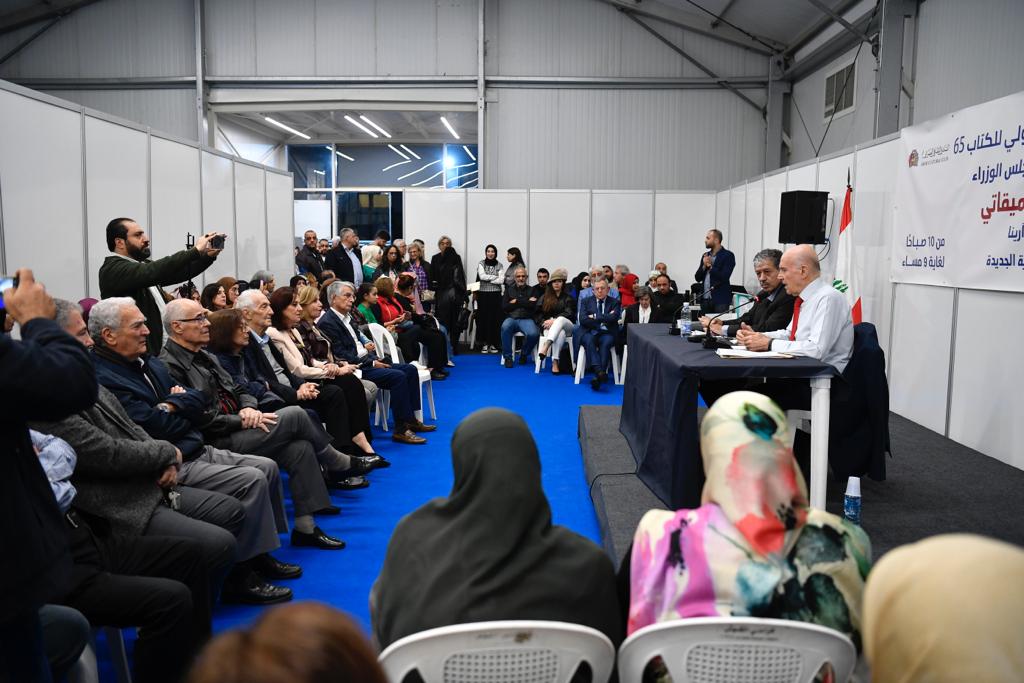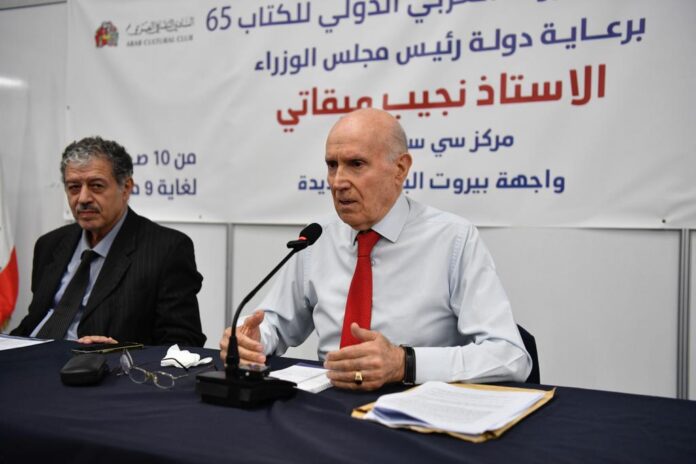During the 60th edition of Beirut Book Fair, the Arab Cultural Club organized a conference titled “The Experience of Humanitarian Organizations: the Example of Amel Association International”, during which Dr. Kamel Mohanna, president of the association and general coordinator of the Lebanese and Arab NGOs Network, made an intervention. Many cultural and social figures, friends of Amel, as well as members of the board of directors and teams of the association were also present.
In his opening remarks, Suleiman Bakhti, writer and editor, traced the significant stages of Dr. Mohanna’s life, highlighting his sense of ethics, his conceptual attachment to the nation, and his unwavering commitment to human dignity, which he has always placed at the core of his actions. Mr. Bakhti also emphasized Kamel Mohanna’s vision, which stands out from the culture of oppression and negative thinking, remaining focused on the democratic experience embodied by Amel, contributing to the construction of a state of social justice and the strengthening of citizenship.
 On his part, Kamel Mohanna addressed the role of humanitarian organizations, their evolution over the years, and their relationship with the state and society in Lebanon. Providing an overview of the history of humanitarian organizations worldwide, he recalled that Amel is a non-confessional civil experience, born in the 1970s, in line with national liberation movements. The association now embodies a social movement for change, aiming to free humanitarian action from capitalism and neo-colonialism.
On his part, Kamel Mohanna addressed the role of humanitarian organizations, their evolution over the years, and their relationship with the state and society in Lebanon. Providing an overview of the history of humanitarian organizations worldwide, he recalled that Amel is a non-confessional civil experience, born in the 1970s, in line with national liberation movements. The association now embodies a social movement for change, aiming to free humanitarian action from capitalism and neo-colonialism.
Amel, whose action extends beyond Lebanon, has become one of the first Southern humanitarian organizations to operate in Northern countries, focusing on developing a culture of solidarity rather than pity and working for human dignity wherever it intervenes. Additionally, Amel has been nominated for the Nobel Peace Prize for the eighth consecutive year.
Kamel Mohanna concluded by stating that the role of humanitarian organizations is to participate in the social change movement by empowering individuals to take control of their destiny. Amel’s strategy aims to provide a model in the search for sustainable solutions, offering the best development programs and services to local populations while ensuring the respect of human dignity. Ensuring access to fundamental rights for everyone requires global solidarity and falls under the responsibility of those in political leadership or with influence. Amel strives to present a model to follow, whether in Lebanon or worldwide.


 Creative Commons Attribution 4.0 International license
Creative Commons Attribution 4.0 International license